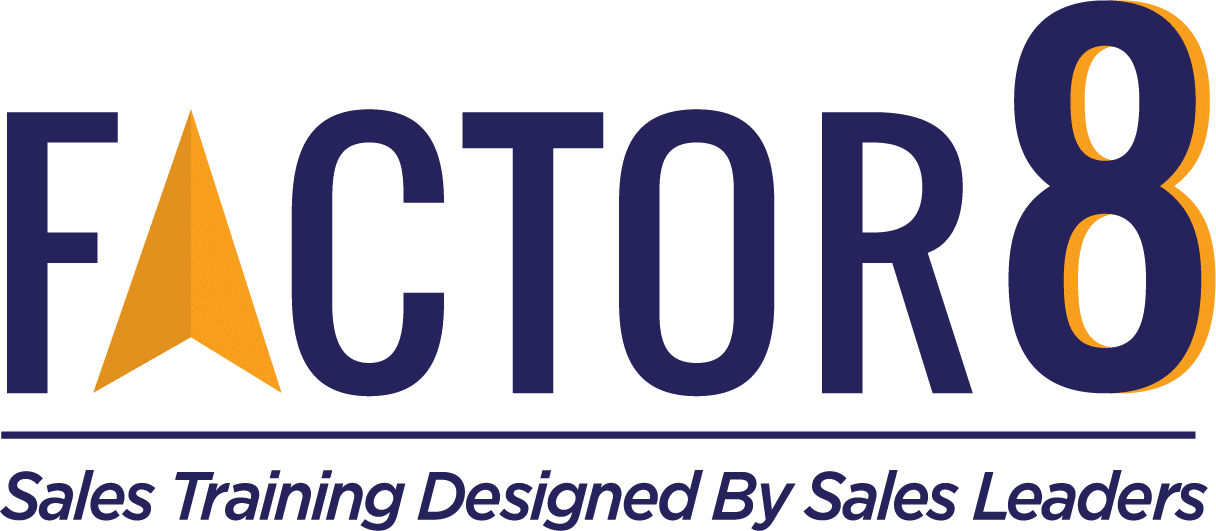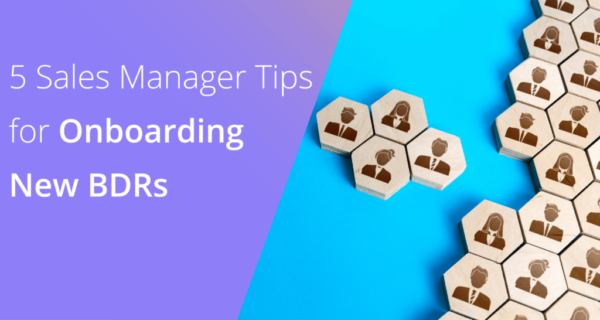5 Sales Manager Tips for Onboarding New BDRs
Great news. You’ve got proof of concept, found your ICP, and gotten some funding. Now it’s time to build out your BDR team.
Bad news. Once you win the war for talent, the real work of sales training begins. Since most SaaS startups aren’t hiring classes of 15 reps and a trainer, you get the task of onboarding one or two at a time. And then again. And again. And again.
Here are some sales manager tips to save your sanity when onboarding new BDRs:
- Start a Google Doc now with everything they’ll need to know. Brainstorm in the following categories:
- Industry acumen
- Product knowledge – feature, function, benefit
- Customer knowledge
- Ideal customer situations
- Business acumen
- Competitor acumen
- System logins and skills
- Company info – who’s who, relevant background, etc.
- Company processes, procedures, etc.
- Customer FAQ
- Demos
- Testimonials and case studies
- Questions to uncover ideal customer situations and challenges
- Call recordings to hear good, bad, and ugly calls
- Phone sales skills like leaving good voicemails, intros, uncovering contacts, and delivering value props on the phone
- Wherever possible, start hyperlinking to internal and external sites, videos, and resources so reps can self-serve for the info. Why go back and re-find that email 20 times?
- Now identify what you can outsource. Trust me, if you try to hire, train, coach, and lead the team you will either explode or mess a few of these up in a serious way.
- Buy the system training if your vendor offers it or go find free forums and videos to link to.
- Sales skills are another area. Your job is to coach them, not teach them from scratch. Outsource the heavy lifting and stick to leading the team and coaching the delivery. The Sales Bar has hundreds of phone sales resources for new BDRs and Managers. They’ll also want some basic LinkedIn skills. I like Vengreso or Frontline.
- Find internal experts. Use your CEO, product geeks, and past customers and get them to do a video or recorded webinar to teach key points. Keep them short and on track with some guidelines during your request; these folks typically aren’t natural trainers! And if they do it live, get it recorded, I promise they won’t be available every time. Where you can’t record, set up a lunch or coffee chat vs. a formal presentation. Get your new rep to record it, plus their notes!
- Start a schedule and get your document in chronological order with about 6 hours of learning work/day to start. Make the schedule about 2 weeks long and ramp the training time down while call time goes up. So by the end of the second week, they may be doing 1-2 hours of training/day and 6 hours of work. Show that training doesn’t stop and they have some assignments every month! Bonus: show a path to the next level in their career, even if it’s just a footnote. In addition to the learning, your schedule should include:
- Call shadowing with you or other reps. Bonus: have them score it using your coaching form. Side note: get a coaching form
- Calls to past customers to hear their stories and happy outcomes
- Research on their own – e.g. top features of competitors
- Outbound calling – even if it’s just to capture contacts, qualify accounts, data cleanse, etc.
- LOTS of time with you where they bring their questions, you talk shop, build a relationship, and make your newbie feel important
- Hook them up with a buddy/mentor. Reps who build strong friendships at work are happier and stay longer according to Gallup. With the average lifespan of a BDR under 18 months, it’s worth the effort. Pay for their first lunch and ask them to get together weekly for the rep’s first month. If it doesn’t stick after that, you’ve at least planted some seeds. Bonus: they’ll come to you less often for their questions when they have a buddy.
This approach will help your reps be more independent while saving you at least twenty hours per rep. Each hire can help make the document better and old hires can support the new.
Make updating the document and improving it part of their work assignment so it stays current and off your to-do list.
May this also help you resist the temptation to hand your new rep a script and wish them good luck on the phone. Millennials are searching for career development and time with their boss at work, and they make their employment decisions based on this. Spend a few bucks, give them some structure, buy them some training, and you’ll see the payoff in their faster success and tenure!
Want some help onboarding new BDRs?
We’ve got your back! Contact us today to learn how you can incorporate sales training into your new BDR onboarding process to speed ramp time and improve retention.

